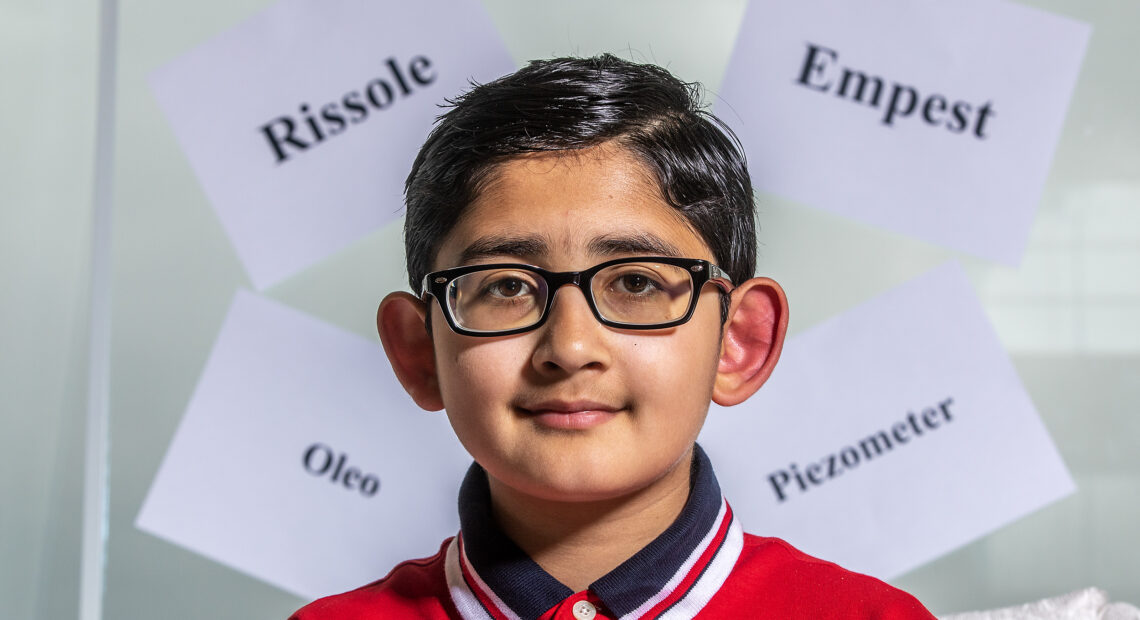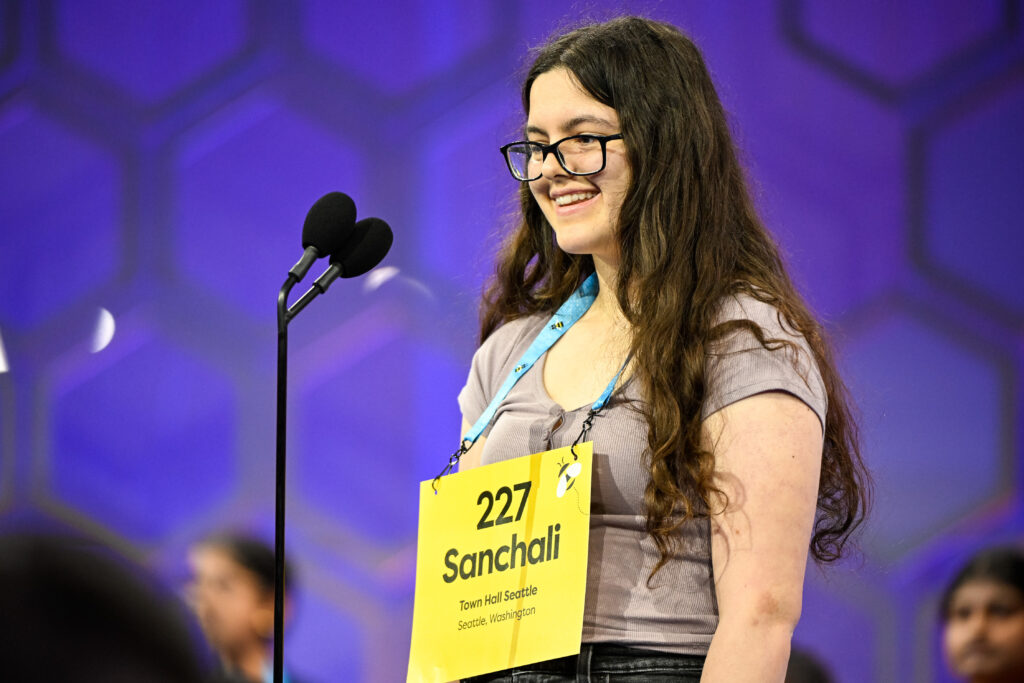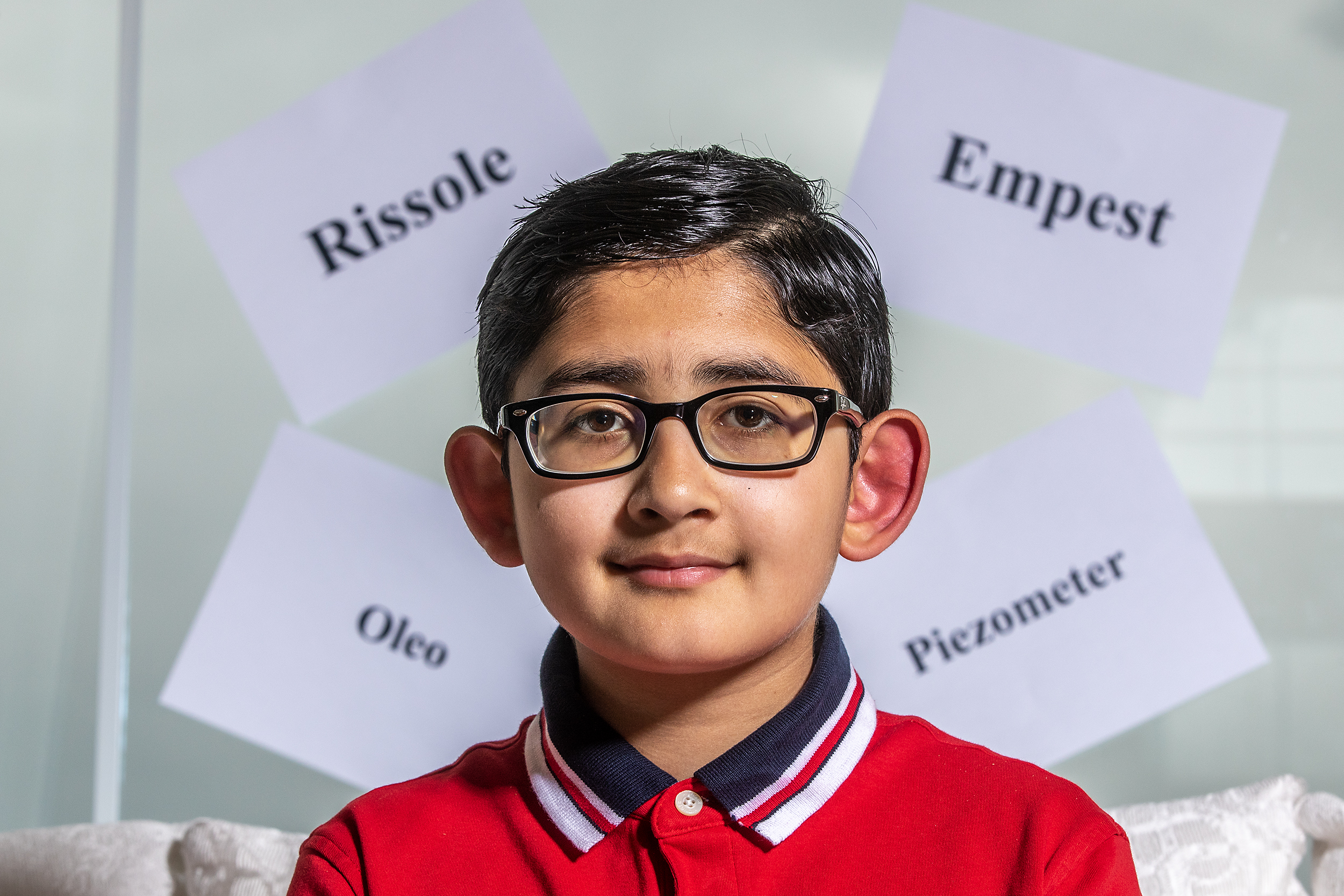
Scripps National Spelling Bee finalist from Pullman says spelling is one of many hobbies
Listen
(Runtime 1:29)
Read
After tying for 12th place at the Scripps National Spelling Bee, 12-year-old Navtaj Singh of Pullman says even though he likes competitions, there’s a lot more to him than just being a good speller.
“Spelling bee isn’t actually my main hobby,” he said.
When he’s not prepping for the Bee, Singh said he likes to play chess, solve Rubik’s cubes, and play board games like “Clue” and “Sorry!” with his 15-year-old sister, Gurveena Singh.
He’s also in his school orchestra, where he plays the violin. He participates in his school’s chess club and started a club for speed solving Rubik’s cubes. His record, he said, is 13 seconds.
One of the hardest things about prepping for the competition was having to take time away from his other hobbies to study, he said.
“I wanted to do things with my friends, like I wanted to play chess games with them, I wanted to race them with Rubik’s cube solving, but I couldn’t do that because I had to study for the spelling bee,” he said.
This year was Singh’s third time competing in the spelling bee and second time making it to nationals. He was first inspired to compete at his school’s spelling bee by his sister, Gurveena, who also competed six years ago and placed third at regionals, he said.
Navtaj is an avid reader, which helped him learn spelling. He said he especially likes action novels.
“I’ve always liked reading a lot. Like, 400 page books, I sometimes just read them in one sitting,” he said.
Navtaj’s mother, Navdeep Singh, said her son has always loved learning and been a quick study.
“He shocked us at three — he picked up reading. We really weren’t teaching,” she said. “He even wants to read manuals and help us out.”
In addition to reading a lot, Navtaj said, both this year and last he dedicated more time to studying for the spelling bee.
“The first year, I was thinking of, quite literally just memorizing words from the dictionary. However, I’m not sure that’s a good strategy,” he said. “You can just get one you don’t know, and then you have no idea how to spell that. So, I think a better strategy is to memorize roots and language patterns.”
Navtaj’s father, Gurvinder Singh, said it can be difficult to see the pressure children at competitions feel. But, he said, Navtaj enjoys it, so he and Navdeep work to support him without adding too much pressure.
“It’s hard to balance,” Gurvinder said. “I think we had a lot of conversations around, ‘Let’s not worry too much about winning or losing. Let’s just put our best effort in, just give 100%, and then whatever comes out of it, it’s totally fine.’”
Navtaj mostly did the prep work for the spelling bee on his own, Gurvinder said.
“Whatever support he needed, we provided. But, otherwise, most of the work was done by him.”
Another Washington contestant, 14-year-old Sanchali Bohacek of Seattle, made it into the semifinals, placing 23rd overall at nationals.
Bohacek said she first heard of the spelling bee when she saw a movie about it in the fifth grade.
“I was like, ‘Oh, that’s fun.’ That was kind of it. My school didn’t have it,” she said.
After switching schools in the seventh grade, she said, Bohacek learned her school would be holding a spelling bee two days before it happened and decided to sign up last-minute and placed third in the school.

Speller 227, Sanchali Bohacek of Seattle, WA representing Town Hall Seattle competes in the Preliminaries of the 2023 Scripps National Spelling Bee in National Harbor, MD on Tuesday, May 30, 2023. (Credit: E. M. Pio Roda / Scripps National Spelling Bee)
When she got to regionals, it took over four hours and around 10 rounds, before another contestant was eliminated.
“We pulled up to the regional spelling bee with skis attached to the roof of our car because we were like, ‘After this, we’re just gonna go skiing. It’ll be fine,’” Bohacek said, laughing. “Then we were there for like, five hours.”
Unlike some other contestants, Bohacek said she didn’t do much studying until she qualified for nationals. She is studying Latin at school, which helped her, she said.
“A lot of the kids spend a lot of time learning Greek roots and Latin roots,” she said. “Those are two really big things.”
Bohacek said the national competition was nerve-wracking, especially because she knew her school was watching her. She also had a lot of fun, she said.
“Generally, in these situations, I will not even go into a presentation in front of my class if I can avoid it. So that wasn’t great,” she said. “You don’t want to get out the first round. Then after that, I think it was a little better, because I was proud of myself for making it that far.”
Bohacek’s mother, Khushboo Bohacek, said her daughter also showed an interest in reading from a young age.
Khushboo said she started reading to Sanchali when she was four months old.
“She was the one who would actually flip the page of the board book for us,” Khushboo said. “We were like, ‘Oh, this girl really likes reading.’”
She was even more nervous than her daughter during the competitions, Khushboo said.
“I don’t think I heard the word, I don’t think I heard her spell. I was just praying,” Khushboo said. “My prayer was always just just, ‘Do your best,” and ‘I know you can.’”
This report is made possible by the cooperative agreement with NWPB, the Lewiston Tribune and the Moscow-Pullman Daily News.
















